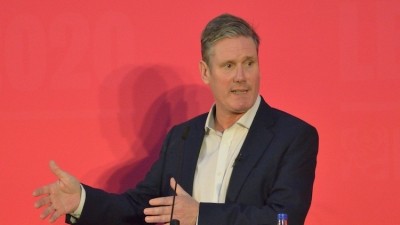Chancellor urged to 'carefully consider' targeted furlough extensions

In its second report to be published on the Economic Impact of Coronavirus, the Treasury Select Committee says that while some sectors suffering most from social distancing may no longer be viable, many businesses in these sectors will have a viable long-term future, but only if they continue to be supported either by their owners or by taxpayers beyond the expiry of the JRS.
It comes days after opposition politicians also called for the support to continue in some form.
The scheme, which was announced at the onset of the UK-wide lockdown back in March, originally allowed employers to claim 80% of an employee's wages up to £2,500 from the Government.
However, as the economy has begun to unlock over the summer, the levels of support have slowly been withdrawn by the Treasury.
In August employers were required to begin paying employer National Insurance Contributions and pension contributions for furloughed hours themselves; and from this month they have also had to pay 10% contribution to every furloughed worker's wage.
During October that will rise to 20%, with the scheme closing permanently at the end of the month.
The committee, which is led by Conservative MP Mel Stride, says in its summary that while the cost of the JRS means it cannot 'persist indefinitely', the Chancellor needs to carefully consider whether a targeted extension of the JRS and/or other targeted support measures will be required, and explain his conclusion.
It adds that the Job Retention Bonus Scheme, which was announced by the Chancellor in July and gives £1,000 to all businesses for each employee retained up to January 2021, does not appear to be 'effectively targeted' and will 'undoubtedly lead to significant deadweight cost'.
Elsewhere in the report, the committee recommends that the Chancellor 'consider whether additional measures to stimulate consumption are warranted'.
With the Eat Out to Help Out Scheme now ended, it says the continued VAT cut on hospitality and leisure 'may not be enough to encourage consumers to continue to spend'.
Meanwhile, with regards to loans, the committee 'is concerned' that there may be 'a significant lack of capacity and willingness' for the private sector to step in to provide solutions for corporate indebtedness, especially amongst small and medium-sized businesses (SMEs)'.
"Viable SMEs struggling with debt will prolong the recession and so the Government must develop solutions for ensuring the recapitalising of their balance sheets," it says.
"The Government must outline a plan for this within the next three months and should think creatively about potential interventions."





















